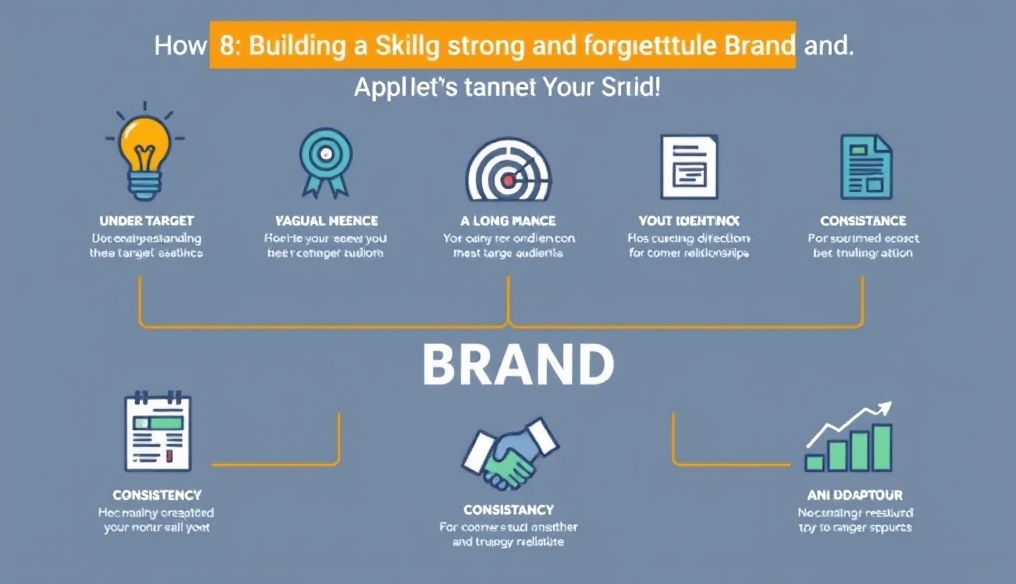Does Failure in a Project Mean the End of the Road for an Entrepreneur?
Failure, a word that evokes fear and anxiety in the hearts of many, especially entrepreneurs who put all their time, effort, and money into their projects. But does failure in a project really mean the end of the road? Is it a death sentence for an entrepreneur's ambitions? The short answer is: no. Failure, in fact, can be one of the most important lessons an entrepreneur learns, and a golden opportunity to re-evaluate strategies, gain experience, and start anew with greater force.
1. Failure is a Natural Part of the Entrepreneurial Journey
Let's face it, there is no path to success that is free of obstacles and setbacks. Even the most successful entrepreneurs in the world have gone through failed experiences before achieving resounding success. Remember Thomas Edison, who made thousands of failed attempts before he was able to invent the light bulb. Or Steve Jobs, who was fired from the company he founded, only to return later and save it from bankruptcy. Failure is not a flaw, it is a natural part of the learning and growth process.
2. Failure is an Opportunity to Learn and Gain Experience
When a project fails, the first thing an entrepreneur should do is analyze the reasons that led to this failure. What mistakes were made? What external factors contributed to the failure? Were there warning signs that were ignored? By answering these questions, the entrepreneur can learn valuable lessons that cannot be learned from success. These lessons will help them avoid repeating the same mistakes in the future, make better decisions, and develop more effective strategies.
3. Failure Helps Develop Resilience and Adaptability
Entrepreneurship requires resilience and the ability to adapt to changing circumstances. The market is constantly evolving, competition is intensifying, and technology is advancing rapidly. An entrepreneur who cannot adapt to these changes is doomed to fail. Failure helps develop this resilience and adaptability by forcing the entrepreneur to step out of their comfort zone, think creatively, and find innovative solutions to problems.
4. Failure Strengthens Personality and Improves Self-Confidence
Dealing with failure is not easy, it requires willpower, patience, and determination. An entrepreneur who succeeds in overcoming failure emerges stronger and more self-confident. They have proven to themselves that they are capable of facing challenges and overcoming them, and that failure is not the end. This self-confidence will help them face future challenges with greater confidence, and ultimately achieve success.
5. Failure Can Be a Stepping Stone to Success
Many successful projects started with a failed idea. An entrepreneur who learns from their mistakes and uses them as fuel to start anew can turn failure into a stepping stone to success. The entrepreneur may discover through failure a new opportunity they had not seen before, or may develop a better idea based on the lessons learned from failure.
6. How to Deal with Failure Constructively?
- Accept Failure: Acknowledge that failure is a natural part of the entrepreneurial journey.
- Analyze the Reasons: Try to understand the reasons that led to the failure.
- Learn from Mistakes: Use failure as an opportunity to learn and gain experience.
- Don't Give Up: Keep trying and don't let failure discourage you.
- Ask for Help: Don't hesitate to seek help from experts and mentors.
- Stay Optimistic: Believe in yourself and your abilities, and remember that success is possible.
7. Inspiring Stories of Entrepreneurs Who Overcame Failure
There are many inspiring stories of entrepreneurs who overcame failure and achieved resounding success. For example:
- Henry Ford: Before founding the Ford Motor Company, Henry Ford failed in several business ventures.
- Walt Disney: Walt Disney was rejected by many production companies before he was able to achieve success.
- Oprah Winfrey: Oprah Winfrey was fired from her job as a news anchor before becoming one of the most successful media personalities in the world.
8. Tips to Avoid Failure in Future Projects
- Conduct Thorough Market Research: Before starting any project, make sure there is a demand for the product or service you offer.
- Develop a Detailed Business Plan: The business plan should include clear goals, specific strategies, and a realistic budget.
- Build a Strong Team: Surround yourself with qualified and trustworthy people who can help you achieve your goals.
- Be Prepared to Adapt to Changes: The market is constantly evolving, so be prepared to adjust your strategies as needed.
- Don't Be Afraid to Ask for Help: Don't hesitate to seek help from experts and mentors.
9. Failure is Not the End, But a New Beginning
In conclusion, failure in a project is not the end of the road for an entrepreneur. Rather, it is an opportunity to learn, grow, and develop. An entrepreneur who deals with failure constructively can turn it into a stepping stone to success. Remember that failure is not a flaw, it is a natural part of the entrepreneurial journey. Don't let failure discourage you, but use it as fuel to start anew with greater force.
10. Additional Resources
For more information on how to deal with failure in entrepreneurship, you can check out the following resources:
- Books on Entrepreneurship: There are many great books that address the topic of failure in entrepreneurship.
- Articles and Blogs: There are many articles and blogs that offer tips and guidance on how to deal with failure.
- Workshops and Seminars: You can attend workshops and seminars on entrepreneurship to learn more about how to avoid failure and achieve success.




